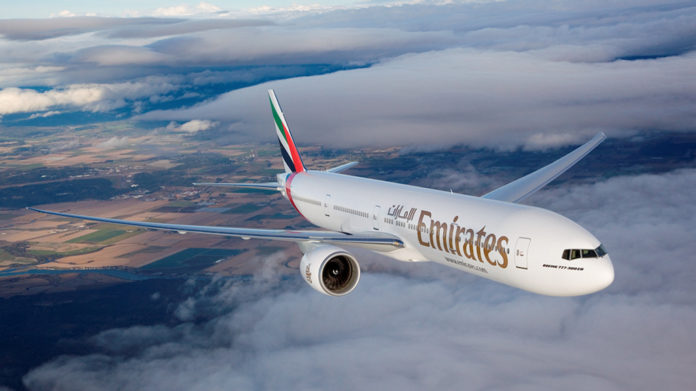Emirates, the world largest operator of the Airbus A380 superjumbo and the Boeing 777s is looking to shrink its plane again after 20 years since the airline last flew a single-aisle liner. Emirates currently only operates the 777s, which is capable of carrying 266 passengers, and the A380 superjumbo which can carry up to 615 passengers, are now being considered as inefficient and ‘not suitable’ for every route.
According to Emirates Airline President Tim Clark, he mentioned that,
“He is looking at buying smaller single-aisle jets, better known for tighter cabins and fewer amenities, rather than its opulent airliners with showers and walkup bars.”
Tim Clark added that they are still undecided over which aircraft, the A320 or the B737 to add to their current fleet.
Emirates is also looking forward to move to their new colossal airport – Al Maktoum International Airport – at Dubai World Central, some 40KM from Dubai International Airport. The new airport will come with more runways and gates which will be able to better serve smaller cities. According to reports, the two airports will also be linked by a high speed rail.
However, Emirates is currently facing a tough time in the current global economy as strong competition from other airlines have eroded their per passenger profit. With the waning of the oil prices in recent years, passengers have been on the look out for cheaper and lower fares, and Emirates have discounted their fares to a point of ‘stupidity’ so as to attract these people, uttered Clark.
In addition, it seems that there are several billions of dollars of aircraft that is currently on order with both Airbus and Boeing, and Emirates is now either putting them on hold or delaying the delivery while all other purchases are now shelved. According to news reports, 70 A350s were cancelled in 2014 and some superjumbo(s) have its delivery postponed from 2018 to 2019.
Yet, the current economic climate is not Emirates only challenge, the other challenge lies in the political climate – Trump’s administration. Major US carriers claim that the Open Skies Agreement has given unfair advantage to Middle Eastern airlines which allows them to benefit from national subsidies. U.S. airlines have begun to petition the State Department for a review to the agreement that dictates who can have access to the U.S. airports.
It is still too early to speculate what President Trump will do to help U.S. Airlines. This is a catch-22 game because if President Trump decides to trim the wings of the Middle Eastern carriers, there will be a ripple effect on Boeing’s bottomline since Emirates will likely have to cancel their orders. As for Emirates, I guess they will just employ a wait-and-see strategy.





